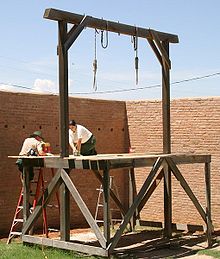There are several common verbs that have more than one past tense or past participle — like spill, and hang. Where he spilt the ink, I spilled it; the villagers hung their clothes out to dry, but they hanged their thieves. Many of these usage differences are geographical, determined largely by which side of the Atlantic you’re on. (Brits tend to prefer the poetic “t” to the more formulaic “-ed”.) But not all. There are a few other factors — some of them slightly obscure, and even possibly unconscious — that can affect which past-tense version you decide to opt for.
Dived or dove: “Dived is the traditional past tense and past participle. But the newer dove, which probably came about by analogy with similar words like drove and wove, has been in the language approximately two centuries and is now standard in American and Canadian English. Outside North America, where dived still prevails by a large margin, some might consider dove wrong.” (Grammarist)
Hung or hanged: “In the history of English, the verb to hang has traditionally been divided into two different kinds of past tense, with hanged referring to the method of execution and hung referring to everything else. The hat was hung; the jury was hung; but the man was hanged.” Read at Oxford Dictionaries how this came to be the case.
Dreamed or dreamt*: “Dreamt is more common in Britain, while dreamed is more common in other English-speaking countries, including the U.S. Dreamed seems to be more popular than dreamt when talking about sleeping, but when dream has a hopeful, literary sense, dreamt might be used.” (Grammarly)
Leaped or leapt: “According to Garner’s Modern American Usage, traditionalists prefer “leapt,” so if you want to keep the grammar curmudgeons happy, stick with that.” (Writer’s Digest)
Pleaded or pled: see Glosso’s earlier post “The English pleaded, the Scots pled”
Spelled or spelt: “In American English, spelt primarily refers to the hardy wheat grown mostly in Europe, and the verb spell makes spelled and as a past participle. In all other main varieties of English, spelt and spelled both work as the past tense and past participle … Both spelled and spelt are old, and examples of each are easily found in historical Google Books searches covering the 17th and 18th centuries. It is true, however, that spelt was ascendant everywhere through most of the 19th century. This ended when Americans permanently settled on spelled around 1900.” (Grammarist)
Smelled or smelt: “Brits use smelled and smelt interchangeably, but speakers in North America rarely use smelt. Smelt also has meanings unrelated to smelling. Its other meanings have to do with metalworking and fish.” (Grammarly)
Some other verbs with irregular past participles:
burned or burnt*
spilled or spilt*
kneeled or knelt
spoiled or spoilt
Leaped/] or leapt
leaned or leant
learned or learnt
* Lee Wright on Quora makes an interesting point about the irregular past forms of spill, dream and burn: “[T]hese three specific voiced sounds can have an “irregular” form: “spilt,” “dreamt”…, “burnt,” etc. Both forms are accepted, but in American English, the irregular form is usually reserved for adjectives: “spilt milk,” “burnt toast,” etc. Americans tend to say, for example, that Joan of Arc was “burned at the stake,” but her flesh was “burnt.”
***



This can be helpful for you: https://en.learniv.com/info/en/irregular-verbs/smelt-or-smelled-what-is-correct-and-how-to-use-it/